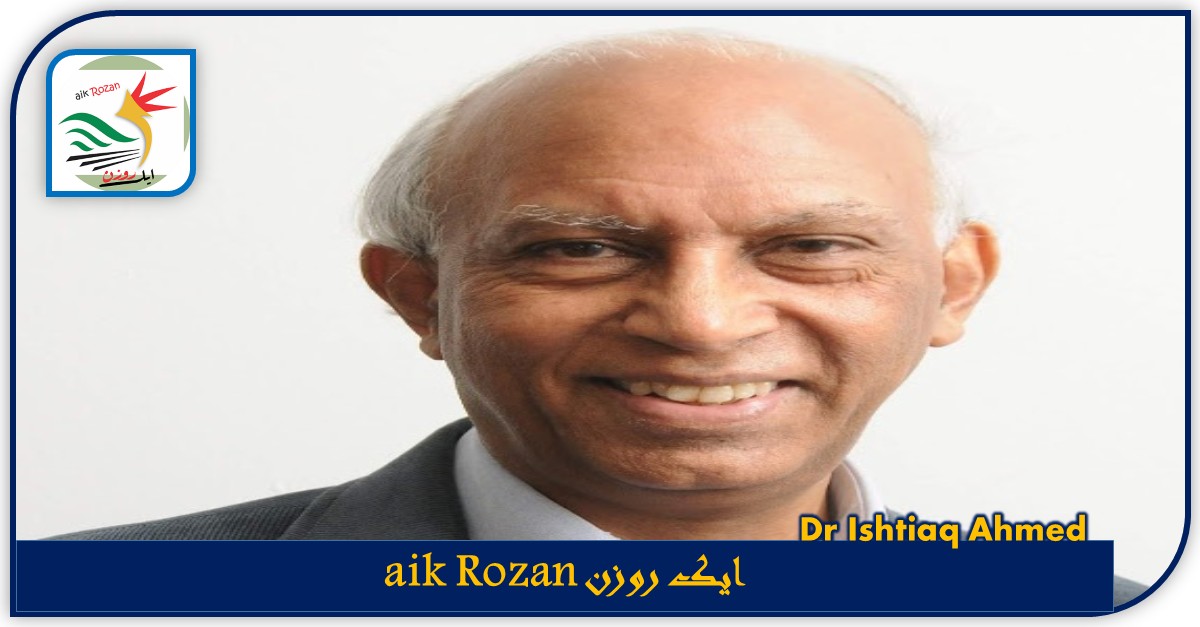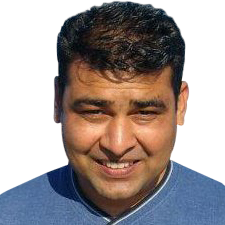
Freedom of speech and its detractors
by, Dr Ishtiaq Ahmed
The Universal Declaration of Human Rights (1948) states that ‘Everyone has the right to freedom of opinion and expression; this right includes freedom to hold opinions without interference and to seek, receive and impart information and ideas through any media and regardless of frontiers’.
The chief theorist of freedom of speech was John Stuart Mill. He argued that the only way society can progress is by letting human beings express their views and opinions freely. If everyone enjoys such a right, then the listeners or readers can figure out which standpoint is rational and cogent, and which is flawed and unconvincing.
How would that happen? Mill put a very high premium on human intelligence and rationality. For him,individuals are intelligent, autonomous agents capable of making correct choices if they are given several alternatives. He asserted that it does not matter if bad or wrong ideas are expressed, because only when different ideas exist can human beings make out what is right and what is wrong. Such a view of human beings is positive and sympathetic but too optimistic. It is not only reason or evidence which informs the human psychology. Emotions, prejudices, complexes and pure and simple dogmatism play an important and sometimes decisive role.
Millqualified freedom of speech with the harm principle. Action and speech which resulted in harm to others constituted an offence that should be punished, he asserted. It is not clear if he meant physical harm only or harm in the larger sense of the word, which could include psychological torment as well.
In any case, slander (verbal character assassination) and libel (character assassination in written form) are recognised as offences against which people can move the court for redress. In Pakistan, the courts will have no time to deal with anything else if all slander and libel offences which occur daily were brought to their notice.
Read more please: Theory of Rights : ancient, medieval, modern, contemporary
The US has probably the most liberal laws on freedom of speech and even infamous extreme right-wing organisations such as the unabashedly racist Ku Klux Klan are free to publish their point of view as long as they do not incite violence against non-whites, Jews and other minorities. Overall, in Western societies preaching hatred against ethnic and religious minorities is a criminal offence. So, preaching hatred of Muslims would be treated as a criminal offence and the culprits put on trial and punished if found guilty.
It does not matter whether one pretends to be a follower of Marx or Mao: individuals with very low and primitive levels of cultural sophistication can be as evil as a religious fanatic or fascist
In the West, religious freedom is guaranteed. It is upon such a basis that mosques have been built in Western cities and localities where sizable Muslim immigrant populations are found. However, not only is freedom of religion guaranteed in the West but also freedom from religion.
Nobody is obliged to believe in a religion and therefore sceptics, agnostics and atheists are free to follow their own moral codes. If people obey the law and pay their taxes, they can lead their lives as freely as they want. There are people who write against religions and satirical magazines also exist in many Western democracies. Their publications do offend, in some cases deeply, the feelings and sentiments of believers. Their standpoint is that religions divide humanity, uphold gender inequality, oppose gay rights and historically have been responsible for wars, minority persecutions, including ethnic cleansing, genocide, and other excesses.
The general understanding is that only when philosophers and scientists were liberated from the tyranny of theology and orthodoxy could knowledge unfettered by dogma grow by leaps and bounds and the West liberalise and democratise and pluralise.
It is worth mentioning that angry, hysterical, even violent reactions to the freedom of thought and expression are to be found not only among religious bigots but people who may profess secular dogmas as well.
Nazism and fascism, two modern right-wing ideologies, are usually blamed for shaping a closed and narrow minded, which is violence prone and which easily takes the form of mob violence and terror. That is amply corroborated by historical evidence.
My experience of fanatical Communists and especially Maoists is no less shocking and disappointing. The ultimate irony is that an ideology which was supposed to liberate humankind from all fetters of physical and mental bondage has also produced the most obnoxiously close-minded individuals as well.
Therefore, it does not matter whether one pretends to be a follower of Marx or Mao: individuals with very low and primitive levels of cultural sophistication can be as evil as a religious fanatic or fascist.
Such a tendency becomes infinitely more vicious among those with a very low self-esteem of what they themselves could achieve. This malevolent personality is vividly described by Shakespeare in many of his classic plays.
Quite simple top achievers who also attain prominence in intellectual and social spheres are always few; they are invariable an object of jealously and envy. Such jealousy and envy can be nurtured by people one considers as close friends. The outburst of hysterical reactions among them hurt most but such is life. Others derive pleasure quietly from the rude and abusive invectives which are hurled at top achievers. Nobody hates anyone who does not matter.
Of course, such individuals are few and most people are positive and appreciative so the few who try to run you down or insult are in great agony themselves and one should try to ignore them with equanimity.
That is the lesson I have learnt for standing up for my views and expressing them honestly and sincerely. For an intellectual nothing is more valuable than his/her freedom to think freely and independently. The detractors will always be there, but one can take a stoical view of their misery which is agonizing them, which they direct against you. Such a response is not easy but it is wise and smoothening.
The writer is Professor Emeritus of Political Science, Stockholm University; Visiting Professor Government College University; and, Honorary Senior Fellow, Institute of South Asian Studies, National University of Singapore. He has written a number of books and won many awards.
Courtesy: Daily Times, May 15th 2018.





1 Trackback / Pingback
Comments are closed.